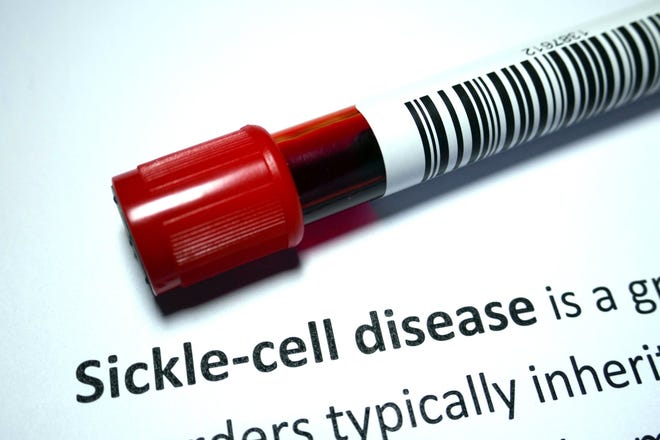Sickle cell disease requires the same resources and attention as other chronic diseases

[ad_1]

Every Floridian struggling with a rare health condition deserves access to quality healthcare services to meet their needs. These patients and their families deal with so much already, from managing painful symptoms to coordinating care and paying for medical expenses. They should not be left to worry about basic access to the treatment they need.
Unfortunately, an often-overlooked population is worrying, and it is time to shine a spotlight on their needs. Each year, 2,000 babies are born with sickle cell disease in the U.S., and over 8,000 Floridians suffer from this disease. Sickle cell disease leads to chronic and unpredictable pain and comes with other severe symptoms that are difficult to manage, including blindness, frequent infections, anemia, and kidney disease.
Sickle cell disease significantly compromises the overall health outcomes of patients in Florida and across the country. The average life expectancy for those with the most severe cases of sickle cell is three decades shorter than the life expectancy of people without it. These patients also have the highest rate of return to the hospital within a month of discharge when compared to other health conditions.
![Sickle Cell Disease impacts about 100,000 Americans (according to RethinkSCD.com). The incidence is about 1 in every 365 African American births and about 1 in every 16,300 Hispanic American births. The incidence of a sickle cell trait is also said to be as frequent in many as 1 in 13 African American births. With major […]](https://www.gannett-cdn.com/media/2019/06/11/USATODAY/usatsports/imageforentry15-e5o.jpg?width=400&height=225&fit=crop&format=pjpg&auto=webp)
Even though sickle cell is such a severe disease, patients struggle to access quality healthcare. Partially to blame is the racial breakdown of sickle cell patients and the unfortunate racial biases in our healthcare system. This patient group is over 80% African American and Hispanic American, impacting one in 16,300 Hispanic births and one in 365 African American births. They deserve access to care just as much as any other patient.
Yet while rarer diseases with predominantly White populations such as ALS, cystic fibrosis, and hemophilia receive significant resources and attention, sickle cell patients have been left to fend for themselves.
There is a general lack of sickle cell research funding, data collection, and pharmaceutical investment, which has created a massive knowledge deficit in the medical community on proper disease treatment and symptom recognition. The number of physicians trained and willing to treat sickle cell patients is extremely limited and healthcare providers often inaccurately doubt the severity of their pain and perceive these patients as seeking drugs.
Healthcare coverage presents yet another challenge. Nearly half of sickle cell patients rely on Medicaid since most do not live long enough to reach Medicare eligibility. They can also rule out employer-sponsored coverage as an option since their severe symptoms often prevent them from having a full-time job.
This leaves sickle cell patients at the mercy of whatever our state Medicaid program decides to cover. This is not always best for individual patients, especially if our state program is not continuously staying up to date on sickle cell treatment developments and reassessing their care plans.

We need to give sickle cell disease the same resources and attention as other chronic diseases. We need our state and federal agencies to work with sickle cell community stakeholders to break down the barriers to care these patients face. Promising new developments in sickle cell treatment could offer us a cure in the near future, but it will be meaningless if patients can access this care.

Velma Stevens is the Executive Director of the Sickle Cell Foundation, Inc., a Tallahassee-based organization working to enable individuals with sickle cell anemia to live lives to the extent possible unhampered and uncompromised by their sickle cell conditions.
JOIN THE CONVERSATION
Send letters to the editor (up to 200 words) or Your Turn columns (about 500 words) to letters@tallahassee.com. Please include your address for verification purposes only, and if you send a Your Turn, also include a photo and 1-2 line bio of yourself. You can also submit anonymous Zing!s at Tallahassee.com/Zing. Submissions are published on a space-available basis. All submissions may be edited for content, clarity and length, and may also be published by any part of the USA TODAY NETWORK.
[ad_2]
Source link
